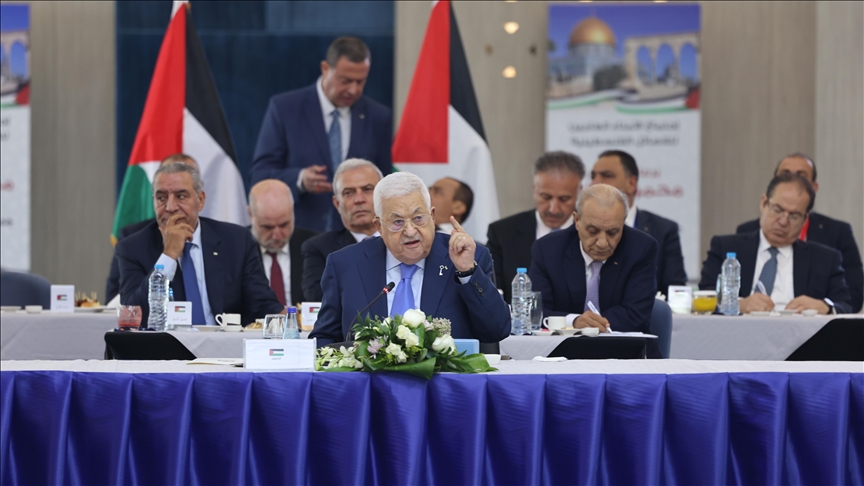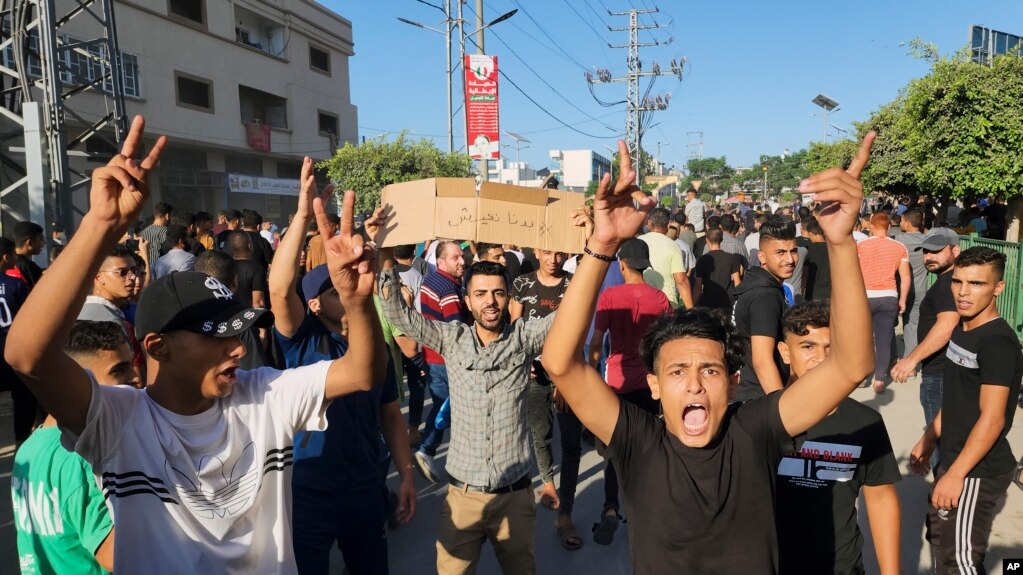
A detail of "The Righteous Shall Receive a Crown of Glory," Brainard Memorial Window for Methodist Church, Waterville, New York, ca. 1901 is photographed while on display at the "Louis C. Tiffany and the Art of Devotion" exhibit at the Museum of Biblical Art in New York on Thursday, Oct. 25 2012. About 7 in 10 U.S. adults say they believe in angels, according to a new poll released on Saturday, July 29, 2023, by The Associated Press-NORC Center for Public Affairs Research.
HOLLY MEYER
Sat, July 29, 2023
Compared with the devil, angels carry more credence in America.
Angels even get more credence than, well, hell. More than astrology, reincarnation, and the belief that physical things can have spiritual energies.
In fact, about 7 in 10 U.S. adults say they believe in angels, according to a new poll by The Associated Press-NORC Center for Public Affairs Research.
“People are yearning for something greater than themselves — beyond their own understanding,” said Jack Grogger, a chaplain for the Los Angeles Angels and a longtime Southern California fire captain who has aided many people in their gravest moments.
That search for something bigger, he said, can take on many forms, from following a religion to crafting a self-driven purpose to believing in, of course, angels.
“For a lot of people, angels are a lot safer to worship,” said Grogger, who also pastors a nondenominational church in Orange, California, and is a chaplain for the NHL's Anaheim Ducks.
People turn to angels for comfort, he said. They are familiar, regularly showing up in pop culture as well as in the Bible. Comparably, worshipping Jesus is far more involved; when Grogger preaches about angels it is with the context that they are part of God's kingdom.
American's belief in angels (69%) is about on par with belief in heaven and the power of prayer, but bested by belief in God or a higher power (79%). Fewer U.S. adults believe in the devil or Satan (56%), astrology (34%), reincarnation (34%), and that physical things can have spiritual energies, such as plants, rivers or crystals (42%).
The widespread acceptance of angels shown in the AP-NORC poll makes sense to Susan Garrett, an angel expert and New Testament professor at Louisville Presbyterian Theological Seminary in Kentucky. It tracks with historical surveys, she said, adding that the U.S. remains a faith-filled country even as more Americans reject organized religion.
But if the devil is in the details, so are people’s understandings of angels.
“They’re very malleable,” Garrett said of angels. “You can have any one of a number of quite different worldviews in terms of your understanding of how the cosmos is arranged, whether there’s spirit beings, whether there’s life after death, whether there’s a God … and still find a place for angels in that worldview.”
Talk of angels, Garrett said, is often also about something else, like the ways God interacts with the world and other hard-to-articulate ideas.
The large number of U.S. adults who say they believe in angels includes 84% of those with a religious affiliation — 94% of evangelical Protestants, 81% of mainline Protestants and 82% of Catholics — and 33% of those without one. And of those angel-believing religiously unaffiliated, that includes 2% of atheists, 25% of agnostics and 50% of those identified as “nothing in particular.”
The broad acceptance is what fascinates San Francisco-based witch and author Devin Hunter: Angels show up independently in different religions and traditions, making them part of the fabric that unites humanity.
“We’re all getting to the same conclusion,” said Hunter, who spent 16 years as a professional medium, and started communicating as a child with what he believed were angels.
Hunter estimates that a belief in angels applies to about half of those practicing modern witchcraft today, and for some who don't believe, their rejection is often rooted in the religious trauma they experienced growing up.
“Angels become a very big deal" for long-time practitioners who've made occultism their primary focus, said Hunter, an angel-loving occultist. “We cannot escape them in any way, shape or form.”
Jennifer Goodwin of Oviedo, Florida, also is among the roughly seven in 10 U.S. adults who say they believe in angels. She isn’t sure if God exists and rejects the afterlife dichotomy of heaven and hell, but the recent deaths of her parents solidified her views on these celestial beings.
Goodwin believes her parents are still keeping an eye on the family — not in any physical way or as a supernatural apparition, but that they manifest in those moments when she feels a general sense of comfort.
“I think that they are around us, but it’s in a way that we can’t understand,” Goodwin said. “I don’t know what else to call it except an angel.”
Angels mean different things to different people, and the idea of loved ones becoming heavenly angels after death is neither an unusual belief nor a universally held one.
In his reading of Scripture as an evangelical Protestant, Grogger said he believes angels are something else entirely — they have never been human and are on another level in heaven's hierarchy. “We are higher than angels,” he said. “We do not become an angel.”
Angels do interact with humans though, said Grogger, but what "that looks like we’re not 100% sure.” They worship God who created this angelic legion of unknown numbers, he said, adding that evangelicals often attribute the demonic forces in the world to the angels who fell from heaven when the devil rebelled.
The Western ideas about angels can be traced through the Bible — and to the worldviews of its monotheistic authors, Garrett said. Those beliefs have changed and developed for millennia, influenced by cultures, theologians and even the ancient polytheistic beliefs that came before the Hebrew Bible and the New Testament, she said.
“There are sort of lines of continuity from the Bible that you can trace all the way up to the New Age movement,” said Susan Garrett, who wrote “No Ordinary Angel: Celestial Spirits and Christian Claims about Jesus.”
The angels in the Bible do God's bidding, and angelic violence is one part of their job description, said Esther Hamori, author of the upcoming book, “God's Monsters: Vengeful Spirits, Deadly Angels, Hybrid Creatures, and Divine Hitmen of the Bible.”
“The angels of the Bible are just as likely to assassinate individuals and slaughter entire populations as they are to offer help and protect and deliver,” said Hamori. She doesn't believe in these angels, but studies them as a Hebrew Bible professor at Union Theological Seminary in New York where she teaches a popular “Monster Heaven” class.
“They’re just God’s obedient soldiers doing the task at hand, and sometimes that task is in human beings' best interests, and sometimes it’s not," she said.
The perception that angels act angelic and look like the idyllic, winged figurines atop Christmas trees could be attributed to an early centuries belief that people are assigned one good angel and one bad — or have a good and bad spirit to guide them, Garrett said.
This idea shows up on the shoulders of cartoon characters and is likely what Abraham Lincoln was alluding to in his famous appeal for unity when he referenced “the better angels of our nature” in his first inaugural address, she said.
“It’s also tied in with ideas about guardian angels, which again, very ancient views that got developed over the centuries,” Garrett said.
For Sheila Avery of Chicago, angels are protectors, capable of keeping someone from harm. Avery, who belongs to a nondenominational church, credits them with those moments like when a person’s plans fall through, but ultimately it saves them from being in the thick of an unexpected disaster.
“They turn on the news and a terrible tragedy happened at that particular place,” Avery said, suggesting it was an “angel that was probably watching over them.”

A statue of Archangel Michael, left, stands near a large United States flag at Russell Salvatore's Patriots and Heroes Park, Friday, Aug. 10, 2018, in Buffalo, N.Y.

Costumed Halloween revelers take pictures with their phones before the start of New York City's 48th annual Greenwich Village Halloween Parade, Sunday, Oct. 31, 2021, in New York.

A man walks by a pair of angel wings displayed in a store in Beverly Hills, Calif., on Tuesday, May 7, 2019

Angels and a note blessing victims rest on the ground at the site of a makeshift memorial for school shooting victims at the village of Sandy Hook in Newtown, Conn., Sunday, Dec. 16, 2012. A gunman opened fire at Sandy Hook Elementary School in the town, killing 26 people, including 20 children before killing himself.

Katy Perry attends The Metropolitan Museum of Art's Costume Institute benefit gala celebrating the opening of the Heavenly Bodies: Fashion and the Catholic Imagination exhibition on Monday, May 7, 2018, in New York.

A statue of the angel Lucifer stands in the Retiro park in Madrid on April 29, 2005. Wrought in bronze, its mouth is agape in horror with fang-baring snakes coiled around the legs, as it falls from heaven.

A well-preserved, long-hidden mosaic depicting the face of an angel which was uncovered by restoration workers at the former Byzantine cathedral of Haghia Sophia in Istanbul, Turkey, is seen on Saturday, July 25, 2009. The seraphim figure _ one of two located on the side of a dome _ had been covered up along with the building's other Christian mosaics shortly after Constantinople _ the former name for Istanbul _ fell to the Ottoman Turks in 1453 and the cathedral was turned into a mosque. The mosaics were plastered over according to Muslim custom that prohibits the representation of humans.
ASSOCIATED PRESS

A bronze statue of the Archangel Gabriel blowing a trumpet stands at the Cathedral of St. John the Divine as the sun rises in the Morningside Heights neighborhood of the borough of Manhattan in New York on Sunday, March 26, 2023.
___
Associated Press religion coverage receives support through the AP’s collaboration with The Conversation US, with funding from Lilly Endowment Inc. The AP is solely responsible for this content.


